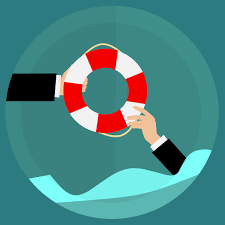Due to the latest regulation, I need to spend my days and nights with my beloved family. It is very exhausting, yet somehow we enjoy the new strange situation. Today my wife pointed out that we are two weeks together and did not find even once, which is amazing. My kids reported that this is the best two weeks in their lives. What’s going on?
Be prepared. Always prepared.
When I was a kid we had some crazy defense classes. The teacher asked “are you ready to protect your country” and the children needed to answer “always ready”. Strangely, after these classes I changed in a way: I always check whether or not I am prepared for the next crisis. In Israel, we have some sort of a minor crisis every four years, and this coronavirus is just another crisis.
The cool thing about preparedness: you should not prepare years before the crisis or when everybody else prepares because then it is expensive. You should prepare slightly before everybody else, and be vigilant enough to take the necessary steps.
You can take similar steps later, and still be OK. Simply you might pay more. What are the steps needed to spend two weeks at home with your family?
Have well-defined roles.
If the roles and schedules are not clear, there is a large amount of stress. There are arguments and unnecessary questions. When everybody knows his role, there is no overhead: things are simply done. All the arguments and negotiations should be solved well before the actual crisis, and the most common scenarios should be visualized. Then when things happen, all we have to do is act according to the scenario.
So well before the crisis we defined:
- The chores and responsibilities of each family member.
- Where and when will each family member rest between the activities.
- Challenges and projects for each family member if he or she gets bored.
- The common goals for the family, for example, what to expect from the crisis.
- The likely issues and how to overcome them, for example, who will buy food.
Stockpile the basics.
OK, we will all buy some jars and toilet paper, basic pharma and possibly water. Yes, this is a must, but not what I want to discuss.
The most basic needs in times of crisis are understanding of the most likely scenarios and skills required to handle them. We should all build basic survival skills when we can. I am talking about first help in different scenarios, effective ways to handle conflicts, financial skills and some money needed to use them.
Probably we will never need the basic stuff, but everything is easier when we feel safe.
Work in small task-oriented teams.
It is best to do stuff in pairs. This will provide more space to other family members, generate communication possibilities and be more fun. There are additional elements of backup in case of emergency, transparency, and psychological support.
When there is no threat, it is often more effective to form committees or work alone. Large teams reduce the number of errors and allow a deeper and more versatile approach. Working alone reduces many overheads and adds freedom. However, in times of crisis, it is best to work in small teams.
Do not argue in crisis. There is plenty of time before and after.
When in crisis the state of mind should be proactive and positive. Even threats should be reframed into opportunities. There will be plenty of time to analyze mistakes and blame each other after the crisis. During the crisis, we can and should provide guidance: how to do certain tasks more effectively. We should also accept criticism as a call for action and not as blame. It is very important to feel the important role and the added value of each and every team member.
Have personal equipment.
Just like tasks should be common, the equipment should be personal. In our family we take a bit to the level of ridiculous: we separate even our refrigerators. It is probably enough to have personal computers and mobile devices as we spend most of our time with these tools.
Having something that is our own is soothing. We need our personal space but are stuck in small apartments (at least in my case). So we generate the personal space through belongings: a personal computer, personal pen, a chair that is mine. My kids have their own things.
A personal unique role is just another thing that helps.
Unique roles.
In swat and army units, soldiers often have very unique personal equipment and training. This is not something we can afford as a family, and yet there are several roles to divide:
- Money. The most important person in the family is the one who handles the budget and divides resources.
- Cleaning. If you are responsible for cleaning, you get everybody’s cooperation and can mobilize the family members.
- Cooking. The person responsible for food works hard, but she gives and gets love from everybody else.
- Morale. For my 6 years old daughter, this is the perfect role.
- Communication and intelligence. Someone has to watch media, to talk with friends and share information.
- Care for the day after the crisis. The person who handles the far future is both respected and avoided. This role is equally important and lonely. The “Thank you” comes later.
You can divide further roles as you want. Roles allow us to feel important and add up to our identity,
Study and plan.
Preparing for what will come after the crisis is an important part of acing the crisis. We need to be ready to grab the opportunities that come after every crisis.

Get 4 Free Sample Chapters of the Key To Study Book
Get access to advanced training, and a selection of free apps to train your reading speed and visual memory

